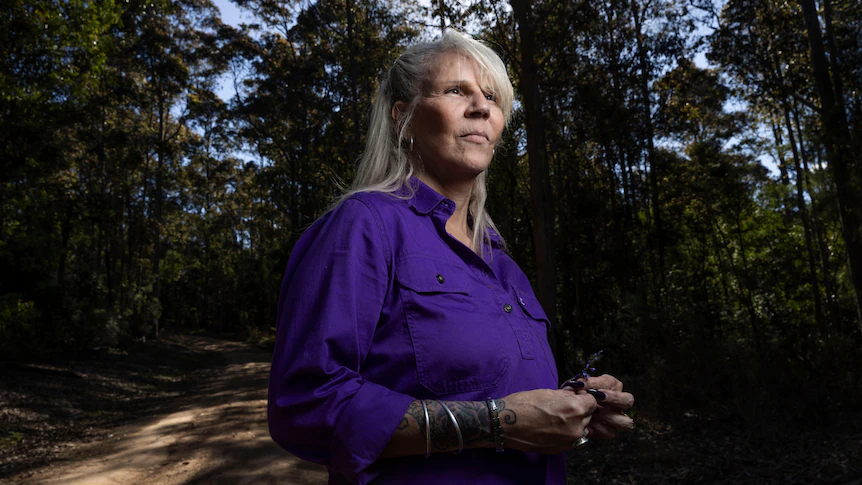By Mikayla McGuirk-Scolaro
Copyright abc

Nikii Smith never set out to become a forensic search expert, but when her father disappeared from a secure dementia ward in 2016 she felt she had no choice.
Frustrated by the police response to her father’s disappearance, Ms Smith began her own search.
Nine years later her search continues.
“I had to learn stuff that you never want to learn as a family member, like what kind of condition a person might be in after a couple of weeks out in the bush,” she said.
Ms Smith is one of 10,000 people who have signed a petition calling for the establishment of an independent search task force for missing persons and a parliamentary inquiry into NSW Police handling of cases.
She said change was desperately needed.
With better police support, she said her father might have been found.
Search flawed
A coronial inquest in 2019 found the police searches for Nikki’s father, Ray Speechley, were neither urgent nor extensive enough.
The inquest heard police spent 45 minutes searching for Mr Speechley on the first night after his disappearance, and only called in search dogs weeks later.
In her findings, former NSW deputy state coroner Elaine Truscott made four recommendations.
They included more resources for South Coast police and the provision of additional fit-for-purpose cadaver dogs.
A new policy requiring searches to extend three days past the maximum survival period was also suggested, along with consultation with family before a search was abandoned.
The NSW Police Commissioner supported three of the recommendations, stating while not all dog types were permanently based in every region, they were available for deployment across the state.
Not wanting families to go through the same thing she had, Ms Smith co-founded the Centre for Missing Persons in March this year.
The centre provides support and resources to families looking for their loved ones.
“We want to fill that void,” Ms Smith said.
Through the centre, Ms Smith said she had already heard hundreds of similar stories of neglect.
Long-term cases left behind
For Kevin Docherty, the feelings of abandonment still linger nearly 40 years after his 15-year-old twin sister, Kay, vanished from Warilla, near Wollongong.
He said police treated Kay as a runaway for 18 months, which forced their parents to take matters into their own hands.
The family tirelessly canvassed the streets for someone who might know something.
“For mum and dad it was agony, knowing nothing was being done [by the police] and there was no-one talking about it,” Mr Docherty said.
The case was briefly reopened in 2013 but nothing new was found, and Mr Docherty said police had not updated him since.
“When you know nothing is being done you take it upon yourself to do what you have to do,” he said.
“It’s a lonely journey, it’s a hard journey, and it’s not easy.”
Mr Docherty remains hopeful his sister will return one day, but has turned his attention to reform.
He too has joined thousands of other voices as part of the petition.
Calls for change
Since 2016, not-for-profit organisation Search Dogs Sydney has helped families continue to search for their loved ones after police investigations end.
Founded by Chris D’Arcy, the service provides trained cadaver dogs and qualified search technicians.
Mr D’Arcy said the petition was started in response to hearing the same stories from hundreds of clients.
“Families are left struggling to secure some kind of response from our police forces across the country to get the assistance they require,” he said.
“That’s why they are reaching out to private organisations like ours.”
He said he had tried to contact the NSW Minister for Police and Counter-terrorism Yasmin Catley to call for change but had so far been ignored.
The petition was tabled and debated in the NSW parliament by Nationals MP Paul Toole in June, however Ms Catley was not in attendance.
During recent budget estimates, Ms Catley said she had been in meetings at the time, and unaware families had travelled from as far as Perth to witness it being tabled.
In a statement, Ms Catley said her thoughts were with families but she opposed an inquiry, arguing that missing persons investigations should remain with police.
A decision on whether an inquiry will be held is expected in parliament later this year.